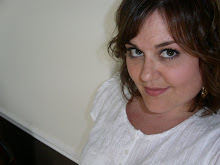The Red Tent
By Anita Diamant
Published 1997 Picador
The premise of the book, as I described earlier, is the life and times of Dinah, Jacob’s only daughter, from Genesis. In the Bible, she is a footnote. She never speaks a word. Her rape by a prince of Shechem sets in motion the slaughter of a city by her brothers, Jacob's sons. They avenge her rape by killing every man in the city, and taking the women and children as booty. But what of Dinah? The Bible never mentions her again, in life or in death.
In The Red Tent, Diamant gives Dinah her own story, from birth to death. She adds a three-dimensional quality to her not often found of women in the Bible. She also colors the text with all sorts of customs and traditions of Canaanites, Egyptians, peoples of the time. It’s a learning experience, a mixture of Diamant’s imagination and bits and pieces we get from the Bible. Diamant says, and I love this, "The compressed stories and images in the Bible are rather like photographs. They don’t tell us everything we want or need to know. Midrash* is the story about what happened before and after the photographic flash."
I have to agree that the Bible tends to tell stories that leave me with more questions. This is one of them. The Bible paints a picture of Jacob as being deceived when he marries Leah, and he goes to his father-in-law in anger and demands the hand of Rachel. For a man who appears to be uninterested in Leah, the Bible lists nine children shared between Jacob and Leah. And what must it have been like to have sisters married to the same man? There is definitely a story there, one Diamant says "cried out for an explanation, and I decided to imagine one."
This book is historical fiction, enough taken directly from the scripture to resonate with me, and enough taken from the author’s imagination to fascinate me. The life of Dinah is so sad by Biblical retrospect, made even more wrenching in the novel. I thoroughly enjoyed this look at a female’s view of Biblical times.
Favorite quote: "We have been lost to each other for so long. My name means nothing to you. My memory is dust. This is not your fault, or mine. The chain connecting mother to daughter was broken and the word passed to the keeping of men, who had no way of knowing. [...] It's a wonder that any mother ever called a daughter Dinah again."
Rating: Four of four stars
*Midrash is described as an ancient literary form, meaning "search" or "investigation," used by rabbis to tell stories from the Bible in a more complete sense, rather than just the glimpse given from the Scriptures.

No comments:
Post a Comment